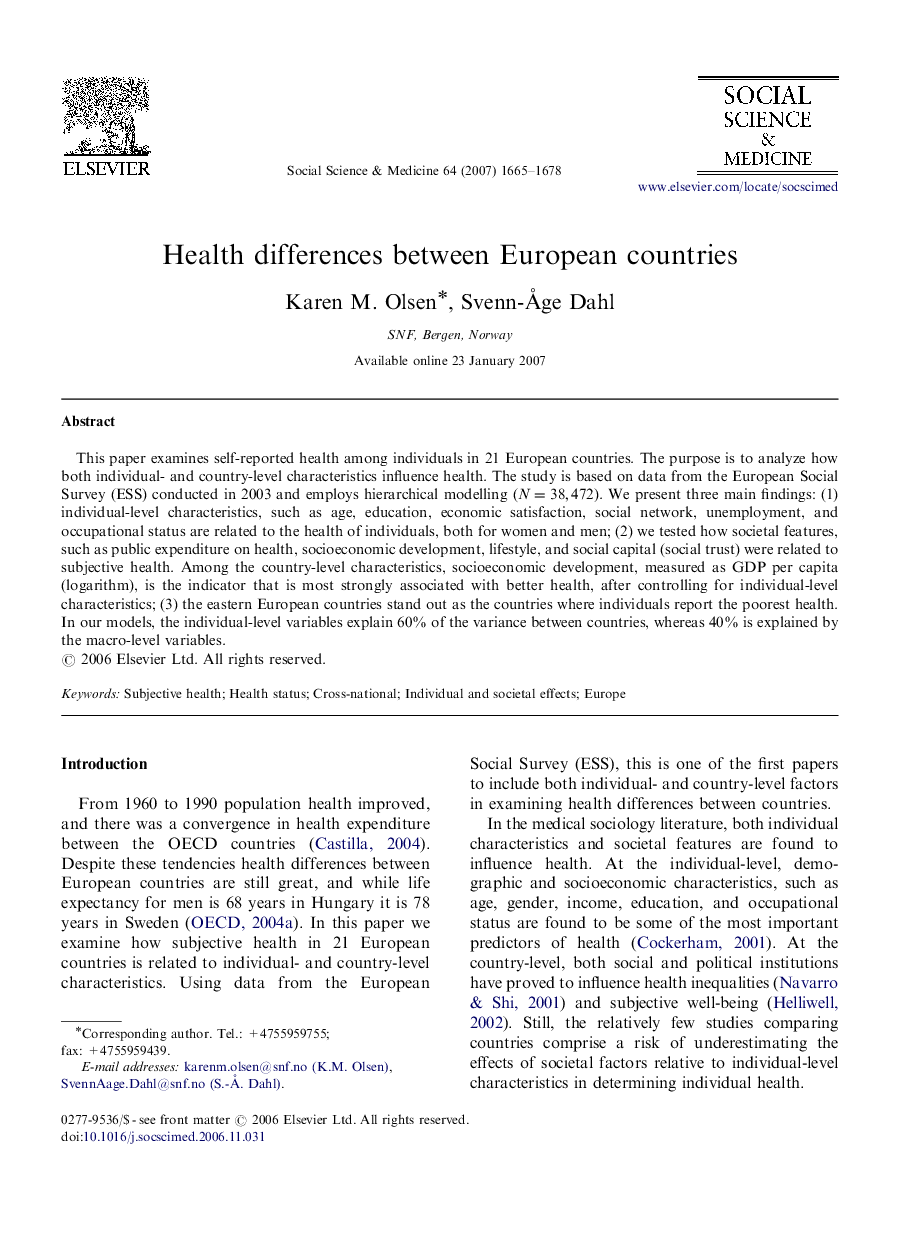| Article ID | Journal | Published Year | Pages | File Type |
|---|---|---|---|---|
| 954810 | Social Science & Medicine | 2007 | 14 Pages |
This paper examines self-reported health among individuals in 21 European countries. The purpose is to analyze how both individual- and country-level characteristics influence health. The study is based on data from the European Social Survey (ESS) conducted in 2003 and employs hierarchical modelling (N=38,472N=38,472). We present three main findings: (1) individual-level characteristics, such as age, education, economic satisfaction, social network, unemployment, and occupational status are related to the health of individuals, both for women and men; (2) we tested how societal features, such as public expenditure on health, socioeconomic development, lifestyle, and social capital (social trust) were related to subjective health. Among the country-level characteristics, socioeconomic development, measured as GDP per capita (logarithm), is the indicator that is most strongly associated with better health, after controlling for individual-level characteristics; (3) the eastern European countries stand out as the countries where individuals report the poorest health. In our models, the individual-level variables explain 60% of the variance between countries, whereas 40% is explained by the macro-level variables.
